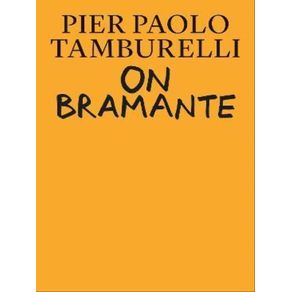A new interpretation of the work of Bramante, suggesting an agenda for contemporary architectural practice
In On Bramante, architect Pier Paolo Tamburelli considers the work of the celebrated Italian Renaissance architect Donato Bramante and through this reappraisal suggests a possible agenda for current architectural practice. Bramante, Tamburelli argues, offers an excellent starting point to imagine a contemporary theory of space, to reflect on the relationship between architecture and politics, and to look back--with neither nostalgia nor contempt--at the tradition of Western classicism.
Starting from a discussion of the difference in the work of Bramante in Milan (1481-1499) and Rome (1499-1514), Tamburelli highlights the peculiarities of Bramante's architecture, especially in comparison to that of his predecessor Leon Battista Alberti and successor Andrea Palladio. This in turn opens up new possibilities for appreciating his spatial experiments, and to derive from Bramante's abstraction and disassociation of form from function a revised theory of space for contemporary architecture. Such a theory might even advance a newfound political understanding of classicism, and a model--perhaps more valid now than ever before--for a public architecture.
The text is bookended by a series of color photographic plates of Bramante's works by photographer Bas Princen.

